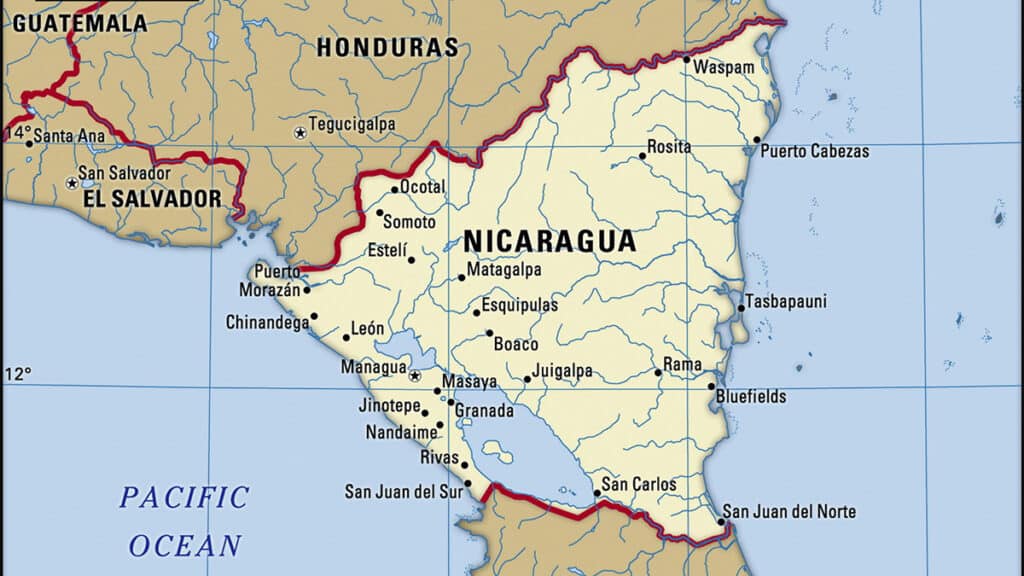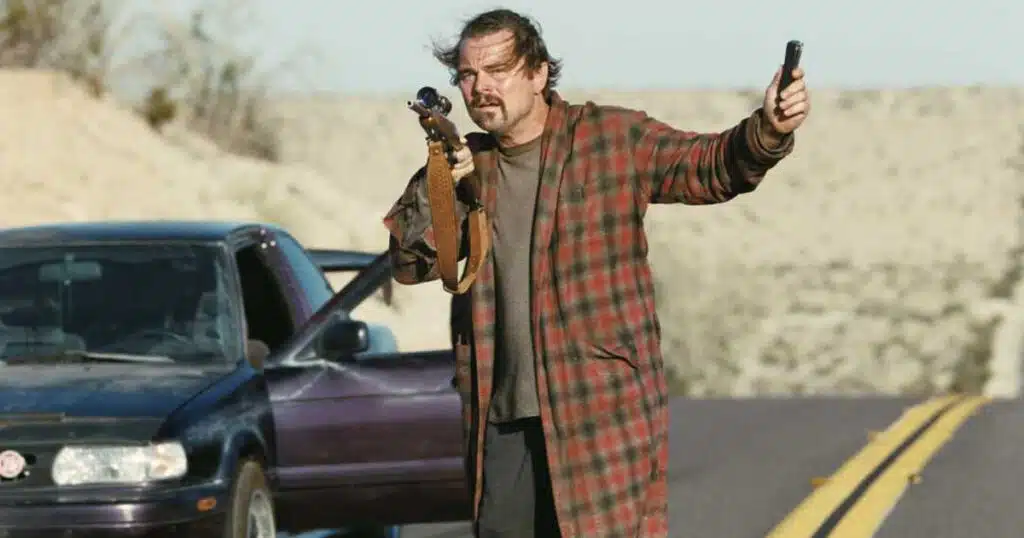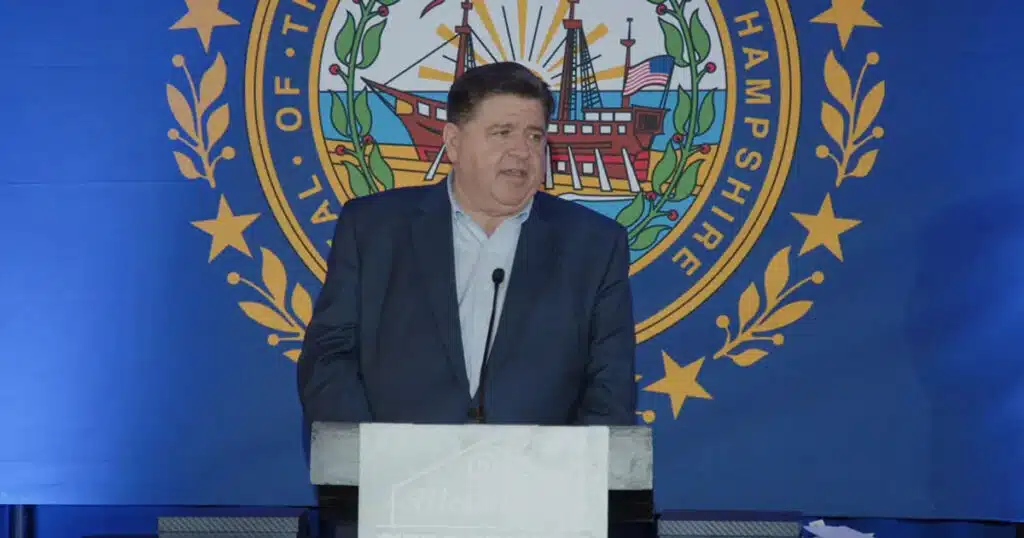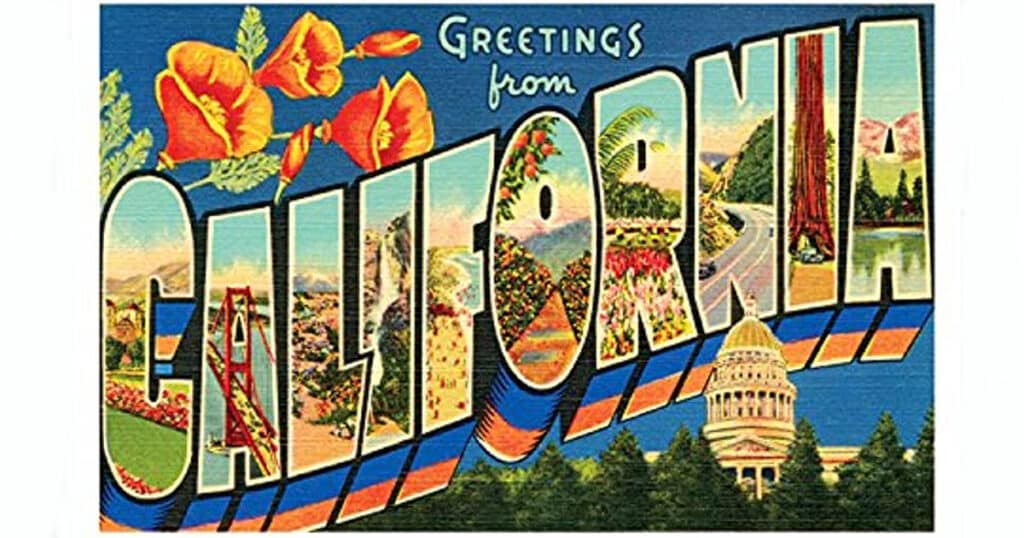
Ortega’s Brutal Catholic Crackdown: Where’s The Outrage?
For millions of Christians around the world, the official religious Christmas season kicked off this week with a renewed sense of normalcy – an abundance of colorful lights, parades and processions, family and church gatherings, and even fireworks in some areas.
Many believers in countries where Christians are religious minorities such as China and India are embracing the festivities with new enthusiasm. Early December marks the first time annual public and private advent gatherings have been allowed since the outbreak of the COVID-19 pandemic.
Yet, in Nicaragua, a predominantly Christian nation, festivities planned by some of its most devout believers are running afoul of harsh new government restrictions that have nothing to do with the pandemic.
A parish in the Archdiocese of Managua reported on its Facebook page that the National Police, which operates under the orders of President Daniel Ortega and his wife, Vice President Rosario Murillo, prohibited it from going ahead with a planned procession commemorating the Solemnity of the Immaculate Conception. Celebrated on Dec. 8, the feast is one of the most important in the Roman Catholic liturgical calendar, venerating the Virgin Mary and marking the start of the Christmas season in many countries, including Italy, where it’s a national holiday.
Speaking in Rome’s famed Piazza di Spagna, Pope Francis marked the day with prayers for the “martyred” people of Ukraine, weeping when calling for peace in the war-torn country. The leader of the worldwide Catholic church, however, was silent on the government assaults against numerous priests and clergymen far closer to his Latin American home of Argentina.
In one neighborhood in Managua, Nicaragua’s capital, the festivities were just as fervent as in Rome and also tinged with sadness – this time over the new, unexplained government prohibitions.
“We want to express our deep sadness at this action that denies us expressing our faith in public,” the parish said in a statement on its Facebook page, noting that it had moved the ceremonies inside the church and around its property.
In recent months Nicaragua’s police have banned several religious processions, a longtime cultural and religious mainstay in a country where 90% of the population is Christian, with 73% identifying as Catholic, according to the U.S. Institute of Peace.
Banning the parades, which draw thousands of believers into crowded streets, hasn’t happened in more than three decades, human rights advocates say. But limiting such popular public religious events is only the latest blow to believers in Ortega’s increasingly harsh crackdown against the Roman Catholic Church and several of its outspoken clerics.
Bishop Rolando Alvarez, the most prominent voice of protest against Ortega’s regime, was arrested earlier this year in a police raid of his residence. He was already under home confinement with 24-hour police surveillance for denouncing the government’s detention of opponents and suppression of civil rights. In mid-August, the police hauled him and eight of his companions away to jail.
Although Alvarez is the most senior clergyman in Latin America to be detained for his political views in decades, he is hardly alone. Over the past year, Nicaraguan police have arrested nearly a dozen priests. They charged some with disturbing the public order. Others were detained, but never formally charged, and their whereabouts remain unknown.
One provincial priest, Uriel Vallejos, remains in hiding after refusing to surrender radio equipment to police who raided the parish’s radio station and surrounded his residence for several days in August. Videos on social media show police using tear gas and shooting in the air to control the crowd who showed up to try to prevent the raid.
Other priests have fled the country to avoid imprisonment, while parishioners and priests who remain live in fear, subjected to harassment by police. Dissidents have documented a total of 190 attacks and church desecrations in recent years, including a fire in Managua’s Metropolitan Cathedral in 2020. The National Police said the blaze, which badly charred a sculpture of Christ on the cross dating back to 1638, was an accident set off by candles that ignited a curtain. But Managua Archbishop Leopold Brenes pointed out that there are no candles in the church and labeled it a “very calmly planned” terrorist attack against one of the most precious assets of Nicaraguan Catholics. The archdiocese said an unidentified person had tossed a bomb into the chapel.
The systematic government attacks on the church picked up steam month by month this year. In a direct affront to the Roman Catholic Church, Ortega in March expelled Archbishop Waldemar Stanislaw Sommertag, the Vatican’s diplomatic envoy to Nicaragua. In late summer, police shut down roughly 10 Catholic television and radio stations, depriving the citizens of their last independent news source.
The government also stripped funding from and terminated the legal status of multiple church-affiliated civil society groups, charities, and nuns. The barred organizations include the missionary order founded by Mother Theresa and the La Universidad CentroAmericana, a private Jesuit university operating in Managua since 1960. The university was the epicenter of anti-government protests in 2018.
The Nicaraguan government’s efforts to tear down Catholic institutions and undermine their influence marks the end of Ortega’s once uneasy alliance with the clergy, some of whom previously supported the Sandinistas, the Marxist movement he has led for more than four decades.
Ortega came to power in the late 1970s after the Sandinistas led an armed revolution against the right-wing dictator Anastasio Somoza. The Catholic clergy split at the time, with some supporting Somoza and others backing the revolution out of concern for the poor and antipathy for Somoza’s oppressive right-wing regime. The Sandinistas purged the priests who backed Somoza but allied themselves with the supportive clergy as a powerful conduit to the Nicaraguan people.
For decades, as Ortega’s regime revealed its authoritarian ways, Nicaragua’s Catholic church served as mediator between the government and its opponents. But fissures grew after a wave of 2018 national protests threatened his hold on power. The Ortega regime deployed security forces and paramilitaries to quash the uprisings, with some 300 people dying in the clashes. Many priests opened up their churches to the protesters and denounced the violence from the pulpit.
In the four years since the protests, churches have become not only a place to seek spiritual solace, but a last refuge for citizens wanting to voice their concerns and listen to speakers not appointed by the government. These free speech sanctuaries are one of the last institutions not co-opted by the government and are therefore viewed by the regime as a direct threat to Ortega’s rule.
Ortega’s authoritarian rule became more repressive last year when it became clear that he would likely lose in the general election to more popular candidates. To stay in power, he jailed all viable opponents, dissidents, and independent journalists, turning the country into a one-party state. He then won his fourth consecutive term in a landslide and gained nearly total control of the country’s congress.
President Biden denounced the “pantomime election” that he dubbed “neither free nor fair” and “rigged” well before Election Day. Secretary of State Antony Blinken followed up with a pledge to use “diplomacy, coordinated actions with regional allies and partners, sanctions and visa restrictions to promote accountability.”
But even regional accountability has been elusive. In June, the Biden administration refused to include Nicaragua, Cuba, and Venezuela at the U.S.-hosted Summit of the Americas, prompting a backlash from Mexican President Andres Manuel Lopez Obrador.
Meanwhile, life in Nicaragua has grown increasingly difficult for dissidents. The clergymen and missionaries who have remained in the country have been subjected to a campaign of fear with constant police surveillance and threats of arrests and imprisonment. The government has forcibly shut down several universities, epicenters for student protests in 2018, and revoked the legal status of more than 60 civic groups. Human rights advocates estimate that Ortega has imprisoned at least 220 dissidents.
These restrictions are one factor prompting an exodus of immigrants, with hundreds of thousands trying to enter the United States illegally over the last two years. Before July 2020, Nicaraguans hardly registered in “encounters” with U.S. authorities at the southern border. But this year, there were more than 13,000 a month, although they still make up only 6% of the total encounters, according to the Council on Hemispheric Affairs, a Washington research organization focused on U.S. policy toward Latin America.
White House press secretary Karine Jean-Pierre has blamed the Ortega regime, noting that Nicaraguans are “fleeing political persecution and communism.”
In August, when tensions between Bishop Alvarez and the Ortega regime were running high, the Latin American Episcopal Council, which represents all the Catholic churches of Latin America and the Caribbean, took a stand. In a rare move, the council “expressed solidarity” with the Nicaraguan Catholic church.
The council, which was previously often divided in their opinions of Ortega, cited an incident captured on video and widely shared on social media in which armed police blocked Alvarez from presiding over a ceremony in a local cathedral. In the viral social media images, Alvarez is kneeling, hands up, with armed police standing close by. After his August arrest and months of entreaties from religious freedom advocates worldwide, Pope Francis provided a muted response to the intensifying crackdown against the church. “I would like to express my conviction and my hope that through an open and sincere dialogue the basis for a respectful and peaceful coexistence might still be found,” he said after a public prayer at the Vatican on Aug. 2.
Yet, neither Francis’ offer to engage in a dialogue nor American sanctions have softened Ortega’s policies. In late September, the regime announced that it would not admit Hugo Rodriguez, the newly confirmed U.S. ambassador to Managua, into the country. Ortega’s complaint? Rodriguez, during his confirmation hearing, said he would “support using all economic and diplomatic tools to bring about a change and direction in Nicaragua,” including removing Nicaragua from the Central America-Dominican Republican Free Trade Act. The CAFTA-DR pact, signed in 2004, opened markets between the countries, resulting in tens of billions of dollars in trade.
As the attacks on Catholics have continued, leading Washington and international human rights activists have pressed for stronger words from the Vatican and the international community, as well as tougher actions by the Biden administration. Religious freedom advocates fear that Francis’ muted stance, coupled with the absence a major international backlash, has only emboldened Ortega.
The pope’s critics say his experience growing up under socialism is impacting his ability to confront totalitarian communist regimes. Over the last two years, Francis struck a deal with Beijing that legitimized the government-approved “patriotic church” in the country – to the consternation of independent clergy across China and Hong Kong.
More recently, the pontiff declined to speak out against the sham trial of Joseph Zen, a 90-year-old retired cardinal of the Catholic church in Hong Kong. Zen was convicted of violating a new “national security” law in late November because of his outspoken advocacy for human rights, political freedom, and religious liberty. The charges can carry a life sentence.
The conviction has spurred vocal outrage against Francis in conservative human-rights circles. In a Sept. 19 Wall Street Journal op-ed, Bill McGurn, a former speechwriter for President George W. Bush, accused Pope Francis of “abandoning” Cardinal Zen. German Cardinal Gerhard Muller recently publicly rued the pope’s silence during a recent summit of cardinals in Rome.
Rep. Chris Smith, a leading human rights champion in Congress, expressed similar concerns over Francis’ tepid response to Nicaragua’s crackdown. The New Jersey Republican, who co-chairs the Tom Lantos Human Rights Commission, told RealClearPolitics that Francis should step up and speak out about the Catholic persecution in Nicaragua.
“The attack on faithful churchmen like Bishop Rolando Álvarez by dictator Daniel Ortega and his wife Rosario Murillo has been sustained and unrelenting,” Smith said. “We encourage the Holy Father to raise his voice on behalf of Bishop Álvarez and those priests, seminarians, and Catholic laymen who are being detained incommunicado without any due process.”
Last week, the State Department quietly added Nicaragua to its blacklist of the worst violators of religious freedom. The U.S. Commission for International Religious Freedom, a quasi-government organization created by Congress, has been urging the State Department to add Nicaragua to its special watchlist for severe violations of faith-based liberty since 2018.
“We have the first Catholic president of the United States since John F. Kennedy and many Catholic members of Congress,” said Ryan Berg, director of the Americas program at the Center for Strategic and International Studies. “We should all encourage Pope Francis personally to consider a greater voice in protecting his flock internationally.”
Bianca Jagger, ex-wife of legendary rocker Mick Jagger, joined the outcry over the summer. A native Nicaraguan, Jagger issued a direct video appeal to the pope, denouncing Ortega’s “unholy war” against the Catholic church and imploring him to condemn the priests’ arrests.
“Why, Your Holiness, have you not spoken about Bishop Alvarez and the priests that are in jail? Why not? [What] about the Nicaraguan prisoners that have been tortured?” Jagger asked in the video, which has circulated widely on social media. “I know that you care for those throughout the world who are persecuted. I know you care so much about the people in Ukraine. Why not Nicaragua?”
Some foreign policy advocates applauded punitive steps the Biden administration has taken in recent weeks, although they say more are needed. In October, Biden signed an executive order targeting Nicaragua’s gold industry because it serves as an illicit source of billions of dollars in revenue for the Ortega regime. The Treasury Department also sanctioned Nicaragua’s mining authority and a Nicaraguan government official and “close confidant” of Ortega.
“The Ortega-Murillo regime’s continued attacks on democratic actors and members of civil society and unjust detention of political prisoners demonstrate that the regime feels it is not bound by the rule of law,” Treasury official Brian E Nelson said in the statement.
During the USCIRF hearing, Rep. Maria Elvira Salazar, a Florida Republican, argued that Nicaragua has become one of the most dangerous places in the world to be a Christian and called the Biden sanctions on the gold industry a “half measure.”
The International Monetary Fund and the World Bank need to suspend all lending to Ortega regime to force real changes, she said. “He wants to destroy the Catholic faith because it’s the only organization, which will not bow down before him,” she said. “No more sweet deals for Ortega.”
Eddy Acevedo, a veteran Washington foreign policy expert who now serves as a top staffer at the Wilson Center, is also pressing for far tougher actions from Washington. At the very least, he said, the Biden administration should retaliate against Ortega’s decision to deny the new U.S. ambassador access to the country.
Biden earlier this year kicked out the No. 2 Russian diplomat after a similar move in Moscow against the deputy U.S. envoy. The president should do the same and expel Nicaragua’s ambassador to the U.S. in retaliation for Ortega not allowing Hugo Rodriguez into the country, Acevedo said.
Acevedo, who helped shepherd several sanctions bills targeting the Ortega regime through Congress over the last decade, said the Biden administration should make all attempts to deny access to loans from the international financial institutions to the regime and bar any Nicaraguan exports into the U.S.
“Ortega’s repression is trying to silence any opposition voices in the country, period,” Acevedo told RCP. “And what’s really unusual is that some of these voices, like the priests and nuns, are purely there to help the people. It is outrageous that Ortega has decided that he doesn’t want to risk the influence the church has in the country and instead continues his attacks against the religious communities.”
A State Department spokesperson explained that while Ortega is barring the newly confirmed envoy from Managua, the previous U.S. ambassador to Nicaragua, Kevin Sullivan, continues to lead the U.S. mission there. However, there was no indication of how long the interim U.S. diplomatic team would last.
The spokesperson also told RCP that “diplomacy remains an important tool” while pressing Managua to allow the U.S. to have a “fully functioning and engaged U.S. diplomatic mission in Managua” to advance “mutual interests.”
“We plan to maintain our diplomatic presence to protect U.S. citizens and support the Nicaraguan people as they strengthen their democratic institutions and accountability, promote economic growth, and advance human rights,” the spokesperson said.
In response to RCP’s inquiry about further U.S. actions, the State Department highlighted its previous sanctions and visa restrictions against the Ortega regime. A State Department spokesperson also called on Ortega to “cease its repressions of democracy, free all political prisoners and allow Nicaraguans to exercise their human rights and fundamental freedoms.”
The spokesperson declined to preview whether the U.S. is seriously considering kicking Nicaragua out of CAFTA. But the spokesperson stressed that “governments that deny their people’s basic rights or threaten the security interests of their neighbors should not expect that their political, economic, and trade relationships will remain unaffected.”
The slow pace of such incremental diplomacy and dialogue frustrates many human rights advocates who believe that world leaders, including the pope, are standing idly by while the Catholic church is dismantled in Nicaragua.
In late November, during an interview with a French television station, Jagger was asked about Francis’ continued emphasis on maintaining a dialogue with the Ortega government.
“I am all for dialogue when they are real perspectives, real possibilities,” she said. “But one should always be very careful when one talks about dialogue, one is not talking about complicity.”
This article was originally published by RealClearPolitics and made available via RealClearWire.



